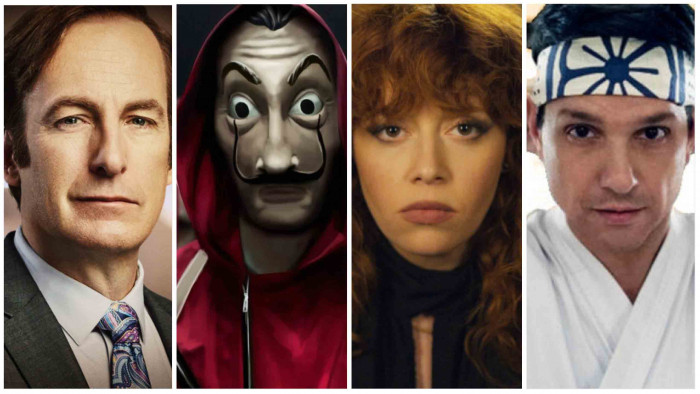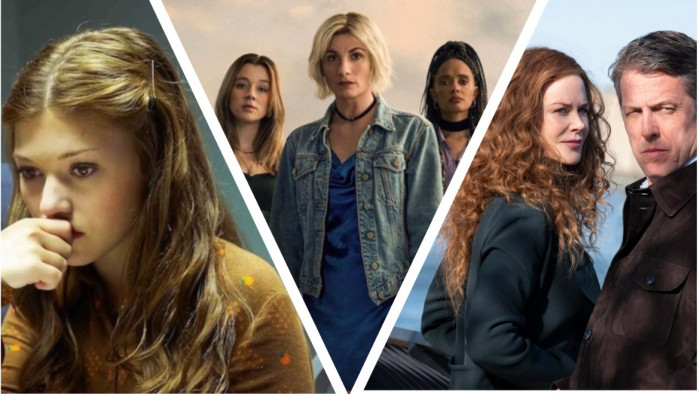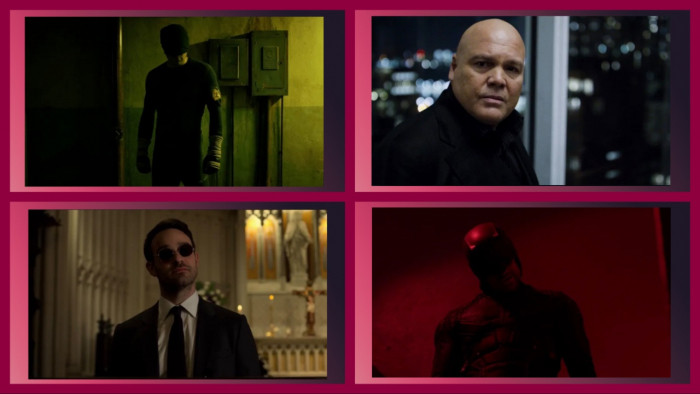'Prince Charles would get an erection if he thought about my childhood' Jeremy Clarkson on Jeremy Clarkson
The exhilarating peaks and problematic troughs of TV's most divisive loudmouth


As The Grand Tour revs up for its long-awaited debut on Amazon Prime, we look back at his whole life story – from televisual triumphs and almighty cock-ups – in his very own words. Plus, some additional thoughts from the great man himself...
Prince Charles would get an erection if he thought about my childhood.
(The Times, 2016)
[I lived in a] very old farmhouse, 400 years old. I couldn’t stand up in it. The nice thing was everyone was at home all the time. I had a very close family. We all got along terribly well. Very happy.
(BBC, 2003)
My first memory is peeling a hard-boiled egg. I was only about 18 months apparently, and it’s still the most practical thing I’ve ever done.
(The Times, 2016)
I was given a ‘Ladybird Book Of Cars’ when I was two and I could say Maserati before I could say money.
(The Word, 1995)
[The business] was very big in the late Seventies. We were living in a factory. The dining room became the stuffing room, the kitchen became the sewing-up room. The spare bedroom was where everything was cut out.
(BBC, 2003)
My parents really didn’t want me going to the local state school in South Yorkshire, which was rough. And I know they put me down to go to Repton (school) with no idea how they going to pay for that. They happened to fall upon Paddington just as I was getting to 13 (…) the school fees were able to be paid.
(BBC, 2003)
My mum was a teacher. She taught art and then started making little bits and bobs which my father, who was then a salesman, could sell while going round the country – one of which was a bear in a duffle coat and a hat and a pair of Wellingtons. Which then became Paddington Bear. (BBC, 2003)
[JC: I owe all of my career to Paddington Bear]
I was a cocky little sh*t coming to a private school at 13. God, it knocks it out of you [...] We had to sweep the corridors – and then they’d come and empty their bins in them, so you’d have to start again. We’d clean the changing room, the bathrooms, make the beds […] In the morning, we were hurled into the plunge pool, which was freezing.
(The Times, 2016)

I can remember the day, the moment, that I thought: this isn’t working just being me. It doesn’t work. I’m going to have to make people laugh. Because once someone’s made you laugh, you can’t be cross with them. And it stopped from that day onwards. I was 14. It was a useful tool.
(BBC, 2003)
If you smoked and drank and said things that annoyed the teachers, you stopped getting thrown in [to the plunge pool].
(GQ, 2006)
[Today] I smoke huge numbers of cigarettes. If I’m awake, I’m smoking.
(Financial Times, 2015)
[JC: It’s helpful. Some cigarettes have good ideas]
The government spends millions telling us it is foolish to smoke, but not a penny telling us not to go to Norfolk unless you like orgies and the ritual slaying of farmyard animals.
(Top Gear Magazine, 2013)
I could misbehave without the embarrassment of a parent finding out.
(BBC, 2003)
[Being expelled] just didn't register. I went home and I was walking down the village street and this chap came along and he was the general manager of the local newspaper, the Doncaster Evening Post, and he said, “I thought you were at school?” And I said, “Oh I've been thrown out.” And he said, “Oh you’ve been thrown out, well, you’ve gotta be a journalist.” And that was the first time I thought about it and thought, “Right, I’ll go and do that.”
(BBC, 2003)
I went for an interview [...] and had written in my application letter that if I got the job, I’d be the third generation of my family to be associated with newspapers in Yorkshire: my cousin had worked for the Doncaster Evening Post and my grandfather had been the doctor on the Doncaster Gazette! So this chap [editor, John Bedford] said, “Was he called doctor Ward!?” And I said, “Yeah.” And he said, “He came out in an air raid during the Second World War to deliver my first child. You start on Monday!”
(BBC, 2003)
I spent three years working at the Rotherham Advertiser, which wasn’t very good, I must admit.
(China Exchange, 2016)

While I was there (…) There was a chap from the Harrogate Herald, he would come along, and he turned up one morning in a brand new Lancia HPE. He was about 19, this guy.
(China Exchange, 2016)
I said, “Where’d you get that from?!” He said, “Great gig, you only have to do a little piece in your paper about cars and you get a free car every week.” And I thought, “Yeah, I can do that.”
(ACA Interview, 2010)
I began to read car magazines, all of which were useless. They told me how big the boot was and the precise dimensions of the rear seat, but all I wanted to know was whether, if I bought a Scirocco, it’d cause me to have more sex than if
I bought a Golf. I decided that one day I’d write about cars in a new way.
(Sunday Times, 2008)
[I left the Rotherham Advertiser] aged 22. I remember going home and I had a girlfriend and actually saying to her one evening, “We got some new furniture in the office today.” And I knew at that moment that I had to leave. Because when the office furniture becomes so important that you actually mention it, pack your bags, get out, move 200 miles away.
(BBC, 2003)
[JC: I just wasn’t being a very good reporter]
I was living in Fulham, which was Thatcher heartland. And everybody had their own little business (…) And I thought I’ve got to have one of these little businesses. So I forced myself to come up with an idea a day.
(BBC, 2003)
Every morning I’d wake up and think, “That’s crap.”
(China Exchange, 2016)

I’ve tried my hand at all sorts of hobbies. I collected stamps. I had a train set.
I’ve attempted gardening, reading, chess, jigsaws, golf, tennis, painting, bird spotting, and looking at pornography on the internet. And I’ve been extremely bad at all of them.
(Top Gear Magazine, 2013)
And then I came up with this idea of writing about cars. You’d write one piece about a car and then syndicate it to lots of local newspapers. And I thought, “That’s fantastic, that’s 20 minutes a week, tops!”
(BBC, 2003)
I never saw what was wrong with the eighties, I had a great time. (The Word, 1995)
[JC: They were really that good]
Car firms run this ridiculous system whereby anyone who writes so much as half a paragraph about a car, they'll invite you to the launch of their next product, which is almost always in America or France – and they fly you first class and put you up. And I was on one of these things and thought, “This is amazing!” I’m in the Carlton in the south of France. And I ran into the producer of Top Gear looking at the new car.
(BBC, 2003)
I said, “I’ll tell you what you want mate, you want me on your programme.” And he said yes, silly sod.
(The Word, 1995)
Top Gear’s not a particularly difficult job, really. You just borrow a car, usually an expensive one, drive around in it – piece of cake.
(The Word, 1995)
With nothing but half a qualification in journalism and the engineering ability of a sparrow, I have become a motoring journalist. Which, along with being a meteorological officer in the Sahara Desert, is possibly one of the easiest jobs in
the world.
(Top Gear, 2005)
I never tired of trying to think up new ways to describe a car and could regularly be found at four in the morning scribbling new lines on a piece of paper by the side of the bed.
(The Top Gear Years, 2013)

You may think that the best bit was the endless succession of new cars. But
it wasn’t. The best bit was sitting down at the computer with an expectant, winking cursor and then, four days later, handling over seven minutes of video tape to the producer.
(The Top Gear Years, 2003)
But I decided it was time for a change.
(BBC, 1999)
I’d taken Top Gear as far as I could.
(BBC, 1999)
[JC: Seriously, The Grand Tour is better]
The shock tactics had become predictable and so weren’t shocking any more.
It was the same with the metaphors. The first time you heard me liken some car to the best bits of Cameron Diaz, you probably sniggered about it at school all the next day. But now, it’s tedious.
(The Top Gear Years, 2013)
I did a range of not-at-all-successful programmes: a chat show, a programme on the history of cars. They tanked. One was so bad that it never got shown at all. So I reinvented (Top Gear) with Andy (Wilman, the show’s producer) and went back.
(The Times, 2016)
I cast Hammond and had known May for a long time (…) the three of us have no talent at all. We can’t play an instrument, we can’t sing, we can’t do anything – but we live like rock gods.
(The Michael McIntyre Chat Show, 2014)
[JC: May is really weird]
[Top Gear] was an all-consuming entity, a many-tentacled global monster
that was dysfunctional and awkward and mad but I loved it with a passion.
(The Sunday Times, 2015)
We made lots of mistakes. Everybody does.
(The Times, 2016)

The biggest [mistake] was Mexico. We got carried away in an item about a Mexican sports car and were very rude about Mexico and Mexicans and it was uncalled for. I apologised to the Mexican ambassador.
(The Times, 2016)
Years ago, I recorded an item for Top Gear in which I quote the rhyme ‘Eeny, meeny, miny, moe’. I was well aware that in the best-known version of this rhyme there is a racist expression that I was extremely keen to avoid. […] When I viewed this footage several weeks later I realised that in one of the mumbled versions if you listen very carefully with the sound turned right up it did appear that I’d actually used the word I was trying to obscure.
(BBC, 2014)
On this occasion it was me making an effort not to offend. It is such a horrible word […] I wish to God that my attempts to cover up that word were better than they were.
(The Sun, 2014)
When sh*t hit the fan [during Top Gear], which it usually did, then the BBC could have been a little bit more supportive from time to time.
(China Exchange, 2016)
My luck stopped suddenly three years ago. In one year I lost
my mother, my house and my job. (The Times, 2016)
Right in the middle of all that brouhaha about sloping bridges and ‘Eeny, meeny, miny, moe’, my mum died.
(The Sunday Times, 2014)
I was very close to my mum […] we didn’t know how long she had. We didn’t know if it was going to be a day or a week or a month – you just didn’t know.
(The Times, 2016)
So there I was, in Russia, in the middle of a Top Gear tour, trying to organise her funeral and tell the children and sort out all the legal stuff, with the BBC moaning at me in one ear and a reporter twittering on in the other, and I knew that if I wept, which is what I wanted to do because I was very close to my mother, the Daily Mirror would run pictures and claim they were tears of shame. It was a gruesome time.
(The Sunday Times, 2014)

Then, one day, I read in Her Majesty’s Daily Telegraph that my contract wasn’t going to be renewed and that they were going to give my baby to someone else […] The sense of loss was enormous. I used to think about Top Gear all the time.
(The Sunday Times, 2015)
I was at the BBC for 27 years and did Top Gear for 12 and it was very much my baby; I absolutely adored it and I worked all the time on it, all through the night and I paid attention to absolutely every little tiny bit of it.
(BBC, 2015)
The BBC allowed us to do anything we wanted. They were brilliant like that. (China Exchange, 2016)
[They never said no to anything]
Two days before the “fracas”, I’d been told, sternly, by my doctor that the lump on my tongue was probably cancer and that I must get it checked out immediately. But I couldn’t do that. We were in the middle of a Top Gear
series. And Top Gear always came first.
(The Sunday Times, 2015)
[It] was the most stressful day I have ever had in 27 years at the BBC. It was beyond-belief stressful, everything was going wrong, and then, you know... there you go. But everyone has stressful days, and they manage to cope better
than I did.
(The Sunday Times, 2015)
It was my own silly fault, so I can’t complain.
(BBC, 2015)
Suddenly you are not asked to do that any more and you do feel there’s a big hole that needs to be filled.
(BBC, 2015)
At 55 […] you’re in a limbo land where time is simultaneously with you
and against you. You are too young to put your feet up but too old to start anything new.
(The Sunday Times, 2015)

You’d be a fool to just jump into something. You need to figure out what to do. The world has changed and now you have to figure out how the world works. Once you figure out how it works then you have to figure out what to do in it. (China Exchange, 2016)
I’ve never had any ambitions. Ambition is a very dangerous thing because either you achieve it and your life ends prematurely or you don’t in which case your life is a constant source of disappointment. You must never have ambition.
(GQ, 2006)
I wanted to do a farming programme, no one wanted to watch that. Then I thought I’d do nothing. Because if you say you’ll do nothing and then you do nothing, then it looks like it’s on purpose.
(China Exchange, 2016)
In the summer it was decided by people with serious faces and stethoscopes that I needed a complete break. And they weren’t talking about two weeks in the sun with a book, and a million cocktail parties every night. They were talking about a whole month in the Stone Age.
(The Sunday Times, 2015)
They said very sternly that after dealing with the stresses of a dying mother and the BBC television chief Danny Cohen and a lost job and a million other things besides, I was about to become a drooling vegetable. I must go immediately to a prison where there would be no contact at all with the outside world.
(The Sunday Times, 2015)
Heartfelt thanks to all those who have written to say how much they will miss me on Top Gear.
(The Sun, 2015)
I think we would have stayed at the BBC and then the show would have got tired
and boring, eventually we would have piloted it into a hillside and that would have been the end. (China Exchange, 2016)
At the time it was all tragic, but now we’ve been forced to reinvent ourselves and we’re online, where you can do anything, like f*ck a horse. It’s forced all of us
to actually concentrate on starting again.
(China Exchange, 2016)
I have no sense of how an engine works at all […] I drive round corners too quickly while shouting. That is my job.
(The Times, 2016)








